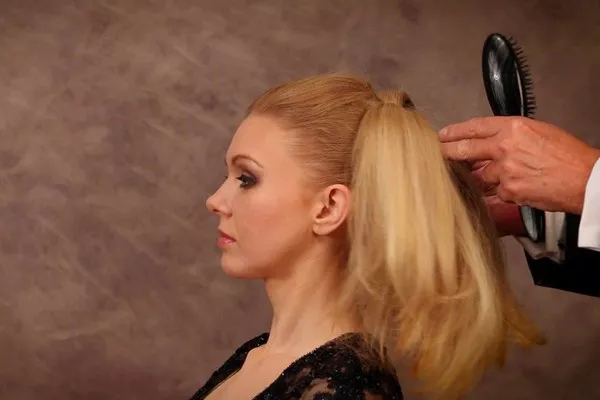Our hair is not only an essential part of our appearance but also a reflection of our overall health and well-being. However, for some individuals, the struggle with thin hair can be frustrating and disheartening. Thin hair can have various causes, ranging from genetics and hormonal imbalances to external factors like stress and improper hair care routines. In this essay, we will delve into the intricate world of hair health, uncovering the possible reasons behind thin hair, and exploring potential solutions to restore its vitality and volume.
I. Genetics and Family History: Rooted in Our DNA:
The Influence of Genetics The thickness and texture of our hair are partly determined by our genetic makeup. If you find yourself with thin hair, it could be attributed to inherited traits from your parents or ancestors. Genetic factors can affect the density, diameter, and growth cycle of individual hair strands, leading to overall thinning of the hair. While we cannot change our genetic predisposition, understanding its role can help us manage and adapt our hair care routines to achieve the best possible results.
II. Hormonal Imbalances and Health Conditions :
Out of Balance: Hormones and Hair Hormonal imbalances, such as those caused by thyroid disorders, polycystic ovary syndrome (PCOS), or menopause, can have a profound impact on the health of our hair. These conditions can disrupt the natural hair growth cycle, leading to increased shedding and the development of finer, thinner hair strands. Consulting with a healthcare professional and addressing any underlying hormonal issues is crucial in managing and potentially reversing hair thinning caused by these imbalances.
III. Environmental and Lifestyle Factors: Beyond Genetics: The External Culprits
1.Stress and Hair Loss: A Vicious Cycle Chronic stress can trigger a condition called telogen effluvium, where a significant number of hair follicles prematurely enter the resting phase and eventually fall out. Stress management techniques, such as exercise, meditation, and a balanced lifestyle, can help mitigate its impact on hair health.
2.Poor Nutrition and Dietary Deficiencies A diet lacking in essential nutrients, especially vitamins, minerals, and proteins, can contribute to hair thinning. Nutrients like biotin, vitamin D, zinc, and iron play crucial roles in hair growth and strength. Incorporating a well-balanced diet with an emphasis on these nutrients can support the health of your hair.
3.Overstyling and Chemical Treatments Excessive heat styling, frequent use of harsh chemicals, and tight hairstyles can damage hair follicles, weaken strands, and contribute to thinning over time. Embracing gentler styling practices, using heat protectants, and allowing hair to breathe between styles can help preserve its thickness and vitality.
IV. Hair Care Practices and Products: Nurturing Your Hair: The Right Care
1.Gentle Cleansing and Conditioning Using mild shampoos and conditioners formulated for your hair type can prevent excessive stripping of natural oils, which are essential for maintaining healthy hair. Avoiding overwashing and rough towel-drying can minimize potential damage.
2.Scalp Health and Massage Nourishing the scalp through regular massages and the use of scalp-stimulating treatments can improve blood circulation, promoting a healthy environment for hair growth.
3.Avoiding Excessive Heat and Chemicals Reducing the frequency of heat styling and minimizing exposure to chemical treatments can prevent further damage to fragile hair strands, preserving their thickness.
Conclusion
In conclusion, the thickness of our hair is influenced by a combination of genetic, hormonal, environmental, and lifestyle factors. While we may not have complete control over our genetic predisposition, understanding these factors allows us to adopt practices that promote healthier, thicker hair.
By addressing hormonal imbalances, managing stress levels, adopting a nutrient-rich diet, and practicing gentle hair care routines, we can nurture our hair follicles, reduce hair loss, and promote new hair growth. It’s important to remember that achieving thicker hair takes time and patience, as the hair growth cycle spans several months.
Furthermore, seeking professional advice from dermatologists or trichologists can provide personalized insights into your specific hair thinning concerns. They can offer tailored solutions, such as medications, supplements, or advanced hair treatments, to address underlying issues and enhance hair health.
Ultimately, thin hair shouldn’t be seen as an insurmountable obstacle. With proper care, patience, and understanding, you can embrace your hair’s unique characteristics and work towards maintaining healthy, voluminous locks. So, don’t lose hope—treat your tresses with love and care, and watch them flourish in return.

